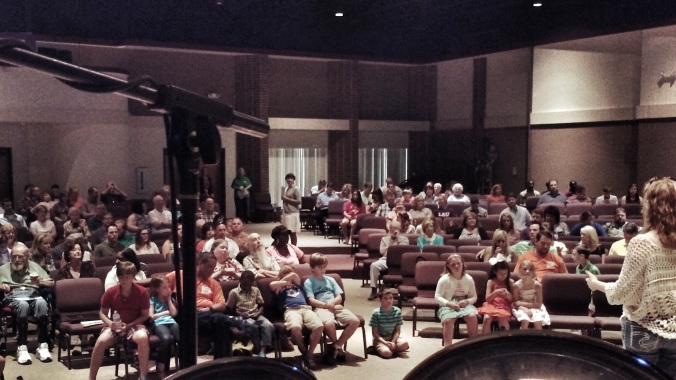 I hope that no matter where you go to church that you have heard about the word “disciple.” Early in Jesus ministry he chose twelve to come by his side and be helpers in his ministry. These became his disciples, his students, and his followers. As Jesus left this earth he commanded his disciples to “make” other disciples, to baptize, and teach them the way of Jesus.
I hope that no matter where you go to church that you have heard about the word “disciple.” Early in Jesus ministry he chose twelve to come by his side and be helpers in his ministry. These became his disciples, his students, and his followers. As Jesus left this earth he commanded his disciples to “make” other disciples, to baptize, and teach them the way of Jesus.
Go out and make disciples in all the nations. Ceremonially wash them through baptism in the name of the triune God: Father, Son, and Holy Spirit. 20 Then disciple them. Form them in the practices and postures that I have taught you, and show them how to follow the commands I have laid down for you. And I will be with you, day after day, to the end of the age.
Matthew 28:19-20 (The Voice Bible)
For two millennia the Church has been tasked with this important mission. We have been called not just to compel others through our witness to become disciples, but to form them and teach them the practices and postures of discipleship. It is out of the learning of practices and posture that disciples engage fruitfully in God’s Mission in the world.
If the fruit of the presence of the community of disciples — called the church — is God’s shalom then I am not sure that we have done our work well.
I am thankful that we as a congregation have recognized this reality. We recognize that although we have grown in number over the years that we need to be better in the ways that we connect people to discipleship opportunities and discipleship communities.
One of those initiatives is our Disciple’s Path course that we are piloting with our Lay Leaders and we’ll roll out across the congregation later this Fall. There Jim Harnish defines discipleship as:
A follower of Jesus whose life is centering on loving God and loving others.
Disciple’s Path Leader’s Guide, p. 20
So in light of this definition, what does it mean for Grace Community to be committed to discipleship and discipling?
I believe that it means that we are committed to discipleship as a posture, as action, and as behavior. It is simply not enough to intellectually ascent to certain beliefs or to do “good things.” Disciples model in their thoughts, actions, and speech a deepening love of God and neighbor. When we fail at living in a growingly loving way disciples acknowledge their sin, seek reconciliation, and submit to each other for accountability and continued growth.
Since accountability is a pivotal part of the journey of discipleship then discipleship formation cannot take place primarily within the worshipping community. Worship is an important aspect that is part of the formation and sustenance of disciples but it’s primary purpose is the offering of our sacrifice of praise and thanksgiving. In offering of ourselves we are in turn more deeply attuned to God and to neighbor thanks to the postures of the worshiping community: prayer, song, gesture, movement, word, and sacrament. It is these postures that provide the sustenance for our daily walk as disciples of Jesus.
The worshipping community becomes the conduit for discipling communities to emerge and thrive. The worshiping community’s (aka. congregation) role in discipling is to birth and sustain discipling communities. These are not just “small groups” as we have come to know in the last twenty years, where the primary function is fellowship and study. Instead we are being called to birth communities of accountability, discernment, mutual care, and mission. The hallmark and primary task is our growth in the love of God and neighbor through praxis in the works of piety and the works of mercy.
I continue to pray that we become such a birthing community. It is in that birthing of discipling communities that seekers find a place to grow into servants, that lives are restored, and grace encountered. It is in this commitment that the Lord will add to our number those who are being saved . . .
